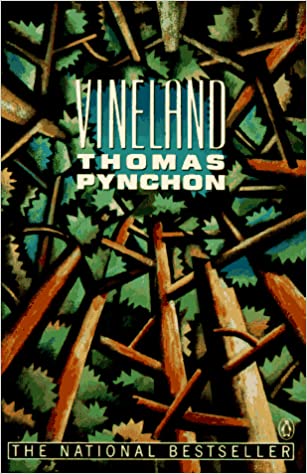
Staff Pick: Vineland by Thomas Pynchon
If you’re in need of a reading recommendation for the summer, you’ve come to the right place! Check out our latest staff selection. Happy reading!

When Thomas Pynchon’s Vineland appeared in 1990, reaction seems to have ranged from joy at the end of the 17-year silence that followed Gravity’s Rainbow to disappointment that the novel failed to live up to its predecessor. Today, Vineland is seen as the misfit in Pynchon’s bibliography, or a throat-clearing before 1997’s Mason & Dixon, but to me it seems more relevant than ever.
Like Pynchon’s other California novels (1966’s The Crying of Lot 49, and 2009’s Inherent Vice), Vineland, set in 1984, uses its simple premise—a daughter seeking her long-lost mother, her father trying to stay one step ahead of the law and the ghosts of his past—as a lens to explore the promises and failures of 60s counterculture. Along the way, it shows us what seems like a preview of our present: addiction to television screens, the rise of an American police state, and the possible antidote of communal living and America’s long, and long-suppressed, history of anti-capitalist movements. It’s a book that becomes prescient by looking backwards and reporting honestly about what was already happening in America, and yet, maybe more than any of Pynchon’s other novels, manages to find a glimmer of hope.
Reviewed by William Youngblood, Interlibrary Loan and Reserves Assistant
